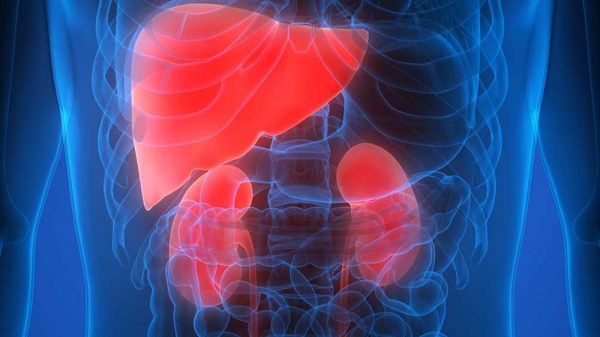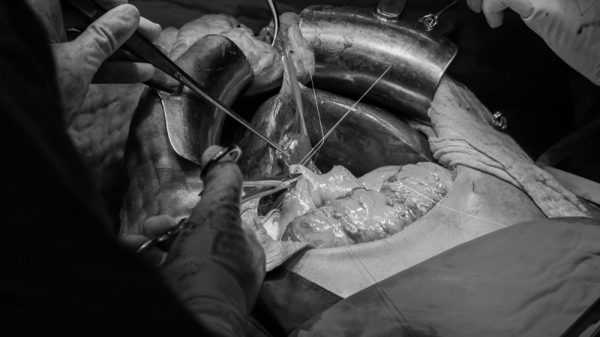As many as 25,000 Americans die from cirrhosis each year. This number shows that Cirrhosis is one of the leading diseases that cause death in America. It is number four on the list of diseases that kill people between 24 and 44 years old. As such, you should do everything to protect yourself from this disease. But experts tell us that most cases of liver diseases, including cirrhosis, are preventable if people would act upon the already available knowledge. But there’s a question worth asking here. Is Cirrhosis contagious? Can cirrhosis be passed from one person to another? Should you be careful around people that have cirrhosis? We will answer this question in this article. Read on.
What does cirrhosis even mean? If you have liver cirrhosis, what it means is that something is causing scar tissue in your liver. And this scar tissue is gradually replacing healthy cells in your liver. This does not usually happen suddenly. It is what doctors would call a chronic condition, meaning it usually occurs over an extended time. Meanwhile, Cirrhosis is an end-stage complication of liver disease, which could have different root causes. Alcohol overuse and infections are some of the possible causes of liver disease. We should also consider if any of these underlying causes is contagious. But before then, we should understand what a contagious disease is.
What is a Contagious Disease?
When you refer to an ailment as “contagious”, it means that the said disease is very communicable. That is, it can spread quickly from person to person. Some contagious diseases spread by contact. But some others are air-borne. So you can contact them just by close proximity to someone who is already infected.
If a disease would be contagious, there must be a causative agent. And this causative agent can be transferred from one individual to another. This causative agent could be a germ, such as bacteria and viruses.
Humans can get certain germs from animals. This is what happens in the case of malaria. Some other germs, on the other hand, infect humans from contaminated water or food. This is what happens in the case of botulism.
However, some germs can transfer directly from an infected person to someone who is not yet infected. This is what happens in the case of measles. These are the diseases we call contagious.
Contagious diseases are not a new phenomenon. They have been around for a very long time and they pose a risk of epidemics. One of the ways exerts have controlled the spread of some contagious disease is through vaccination. Many public health policies and efforts have also helped curb contagious diseases.
Infectious Diseases
How about diseases that occur as a result of germs from animals, water, or food? Those are called infectious diseases. An infectious disease that you can get directly from another human is called contagious.
Contagious diseases can spread through several means. These are in two broad categories. Some require direct contact, while some can spread just by proximity.
Examples of direct contact include kissing or just touching an infected person. Those that spread by proximity are usually air-borne. Such germs are usually transferred when the nearby infected person coughs or sneezes.
However, some contagious diseases can be transferred through inanimate objects. This could happen when someone uses or touches or uses something that a person with the infection has used. This includes risky behaviors like sharing clippers or straws.
And then, there is a special category called STD (sexually transmitted diseases). These are transferred by sexual contacts. This includes oral sex, anal sex, or vaginal sex.
The question is, can you get cirrhosis in any of the ways we have highlighted above? Is it a contagious disease? You will find out as you read on.
Is Cirrhosis Contagious?
Let’s clear the air once and for all. Cirrhosis is not a contagious disease. It does not pass from someone who has the disease to someone else who doesn’t.
But remember, cirrhosis could have different underlying causes. The leading cause is alcohol overuse. This is in no way contagious. So long as you are not abusing alcohol, you are not at risk.
Let’s mention on the side that about one-third of those who drink heavily would eventually develop cirrhosis. The remaining two-third may suffer different types of liver damage or disease, in various degrees.
The second highest cause that underlies cirrhosis is viral hepatitis. There are several types, including Hep. B, Hep. C, and Hep. D. Since hepatitis is a viral infection, it is contagious. So while cirrhosis may not be contagious, hepatitis, one of its leading causes, is contagious.
You cannot get cirrhosis from an infected person. But you can get hepatitis from another person who has the infection. This infection can, in turn, cause cirrhosis. To protect yourself from hepatitis, ensure to avoid contact with the body fluids of other people.
Aside from alcohol overuse and hepatitis, there are many other possible causes of liver cirrhosis. They include Wilson’s disease, cystic fibrosis, bile duct blockages, hemochromatosis, congestive cardiac failure, and glycogen store disorders.
Generally, to prevent cirrhosis, just make sure to lead a health-conscious and healthy lifestyle. Even if you will drink alcohol, drink it in moderation. A man should limit himself to less than 2 drinks daily. And a woman should limit herself to 1. You should seek help if you have problems with alcohol addiction.
And to prevent yourself from getting hepatitis, you should avoid behaviors that could put you at risk of infection. Avoid sharing needles and refrain from having unprotected sex. You should also get vaccinated for hepatitis.
What if You Already Have Cirrhosis?
If you already have cirrhosis, you can still stay alive for many years. And even if you already have complications, they are usually treatable. At the end-stage of cirrhosis, you can still get liver transplantation.
If you are treating (or have successfully treated) cirrhosis, you should avoid alcohol and eat a well-balanced diet. But to answer the question, is Cirrhosis contagious? No, it isn’t. But hepatitis, one of its leading causes, is contagious. Protect yourself from it and get vaccinated.























